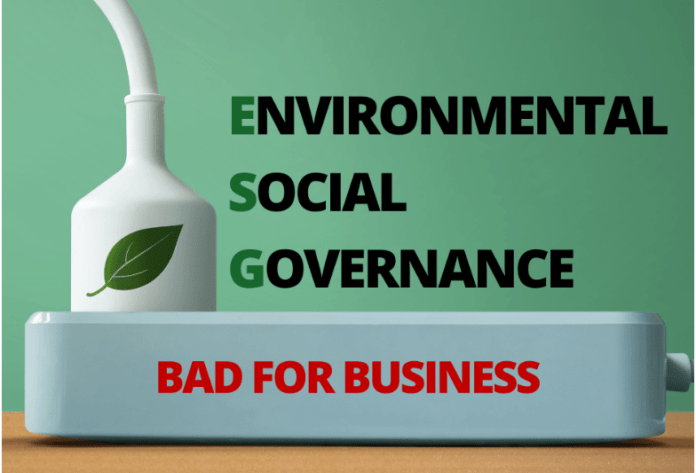As we continue to navigate the ever-changing landscape of business and economics, one thing is clear: sustainability isn’t just a buzzword—it’s become an essential component for globally mandated ESG requirements on local small businesses. For small businesses in Horry County, embracing ESG (Environmental, Social, and Governance) initiatives will boost their reputation score. Not embracing these fuzzy bar mandates, might put local mom and pop operators out of business.
Diane Hardy, of the Mom and Pop Alliance, joined us today to discuss the ever encroaching threat that a global world is mandating on local Horry County businesses.
What Is ESG?
ESG, or environmental, social, and governance, investing is a subset of sustainable investing that focuses on investments in companies that have strong ESG practices. These include companies that the global market believe are leaders in reducing their environmental impact, promoting social responsibility, and good governance.
Companies with strong ESG practices get a better ESG score from financial institutions and American Corporations. Let’s say you own a small business that caters public events. Let’s say you are competing for a catering event at the Myrtle Beach Convention Center. Because the Myrtle Beach Convention Center has bought into this ESG scoring mindset, another small business with strong LBGTQ+ hiring practices, fuzzy social responsibility considerations, and left wing diversity hiring practices fostered by the City of Myrtle Beach, will likely get the job before you are considered. The Davos, global investing crowd, believes that by investing in companies with strong ESG practices, investors can help promote positive societal outcomes such as reduced greenhouse gas emissions and increased access to clean water.
GLOBAL MANDATES FORCED UPON MYRTLE BEACH SMALL BUSINESSES
Small businesses are the backbone of the American economy, and Horry County is no exception. With nearly 4,000 small businesses in the county, they account for over half of the private workforce. But running a small business is not easy. In addition to day-to-day operations, business owners have to worry about things like employee retention, marketing, and managing finances.
Now, the extra burden of policing ESG (environmental, social, and governance) initiatives can tilt small businesses in Horry County with some of these challenges. While it is true that, sustainability programs can help reduce costs by improving energy efficiency and waste reduction, each new employee hire might require your small business to check off a list of “fuzzy” hires to get an approved score.
Capital markets and lending institutions are already employing “ESG responsible lending practices” that can limit small businesses access to the capital they need to grow and thrive.
https://www.horrycounty.org/DocumentCenter/View/16396/Horry-County-Profile-2018?bidId=
COASTAL CAROLINA UNIVERSITY IS ALL IN
In recent years, an increasing number of businesses have been incorporating environmental, social, and governance (ESG) initiatives into their operations. ESG initiatives can take many different forms, but all share the common goal of promoting sustainable and responsible business practices.
Horry County is home to a number of businesses that have successfully implemented ESG initiatives. One example is Coastal Carolina University, which has made sustainability a key part of its operations. Diversity is at the forefront of all new CCU hires.
The positive impacts of employing ESG do exist as well. The university has installed solar panels on several buildings, switched to energy-efficient lighting, and implemented a comprehensive recycling program. These efforts have helped CCU save money on energy costs and reduce its carbon footprint.
Another great example of a positive ESG initiative in Horry County is the Waccamaw River Blue Trail project. This project was launched by a group of local businesses and organizations with the goal of cleaning up the Waccamaw River and making it more accessible for recreation and tourism. To date, the project has removed over 200 tons of trash from the river and created nearly 10 miles of new hiking and biking trails.
These are two examples of how Horry County businesses are making a difference through their commitment to ESG initiatives.
However, there currently is no S.C. law setting a clear pathway for how ESG hiring and ESG investing should occur. As such the mandates are being forced on S.C. by a global community market, hailed in the European Union.
Horry County residents see this as a true breach in liberty.
Hear Diane Hardy’s comments in the video above.


